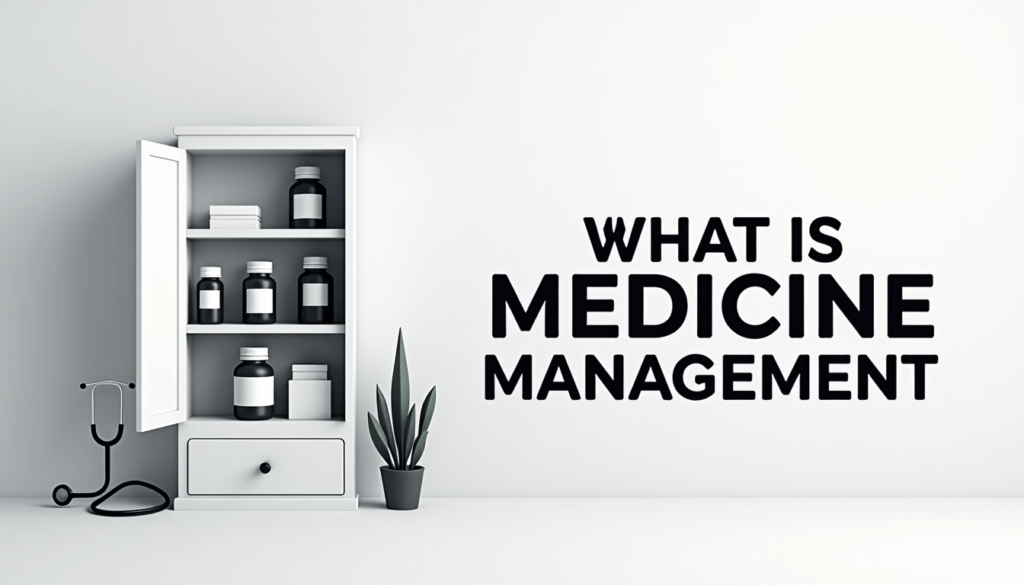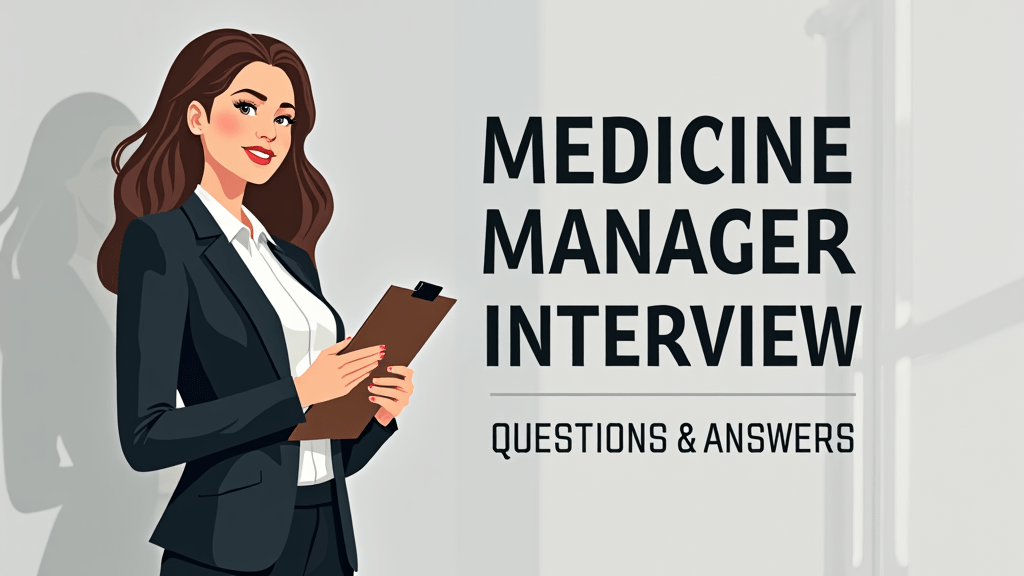What is Medicine Management
Are you wondering what exactly medicine management is and how it can benefit you or your loved ones? Look no further, as this article will provide you with a comprehensive understanding of this essential healthcare practice.
Medicine management refers to the careful handling, monitoring, and optimization of medication usage. It encompasses various aspects, such as prescribing, dispensing, administering, and reviewing medications to ensure their effectiveness and safety.
By effectively managing medicine, patients can experience improved health outcomes and better quality of life. It helps avoid medication errors, such as incorrect dosages or drug interactions, which can have serious consequences for patients. Additionally, medicine management plays a crucial role in ensuring medication adherence, vital for individuals with chronic conditions.
In this article, we will delve into the key components of medicine management, including the importance of proper medication storage, organizing medication schedules, and reviewing medication regimens. We will also explore the different techniques and technologies available to enhance medicine management.
Stay tuned to discover how medicine management can be a game-changer in optimizing your healthcare journey and achieving better health outcomes.
Importance of Medicine Management
The significance of medicine management cannot be overstated. It stands at the forefront of patient care, ensuring that each individual receives the appropriate medication at the correct dose and at the right times. Without this careful oversight, the risk of preventable adverse effects and hospital readmissions increases dramatically.
Medicine management is particularly crucial for patients dealing with multiple health conditions, who often require a complex regimen of medications. The aim is to coordinate these treatments to maximise their effectiveness while minimising potential harm. It is a delicate balance that requires meticulous attention to detail and a deep understanding of pharmaceuticals.
Additionally, with a global ageing population and the rise of chronic diseases, the demand for comprehensive medicine management services is at an all-time high. Efficient medicine management strategies can ease the burden on healthcare systems by reducing the need for emergency care and by streamlining treatment protocols.
Common Challenges in Medicine Management
Despite its importance, medicine management is fraught with challenges. The sheer number of medications on the market, coupled with the unique needs of each patient, can make managing medications a daunting task. This is compounded by the fact that patients often receive prescriptions from multiple doctors, which increases the risk of drug interactions and duplications.
Another significant hurdle is patient adherence. Many individuals struggle to take their medications as prescribed, whether due to forgetfulness, misunderstanding of instructions, or intentional non-compliance due to side effects or other concerns. Poor adherence can lead to suboptimal health outcomes and increased healthcare costs.
Furthermore, the complexity of medication regimens, especially for those with chronic illnesses, can be overwhelming. Patients may face difficulties in understanding the timing and sequencing of doses, which can lead to errors in administration and potentially dangerous consequences.
Key Principles of Effective Medicine Management
Effective medicine management is grounded in several key principles that ensure optimal outcomes for patients. Firstly, it is imperative to have a clear and comprehensive medication plan, which has been tailored to the individual’s specific health needs and circumstances. This plan should be regularly reviewed and updated as necessary.
Communication is also a cornerstone of successful medicine management. Healthcare providers, patients, and caregivers must all be on the same page regarding the medication regimen. Clear, concise, and consistent information should be provided to avoid confusion and promote adherence.
Another principle is the regular monitoring of medication effects and side effects. This includes tracking the patient’s progress, assessing for any adverse reactions, and making adjustments to the treatment plan when needed. Such vigilance helps to catch potential issues early on and to ensure that medications are having their intended impact.
Tools and Techniques for Medicine Management
There are a variety of tools and techniques that can aid in the efficient management of medications. Pill organisers, for instance, can be incredibly helpful for patients managing multiple medications by simplifying the process of sorting doses for the days and times they need to be taken.
Medication management apps are another valuable resource. These digital tools can remind patients when it’s time to take their medication, provide information about potential drug interactions, and even allow for the tracking of side effects. They serve as a digital aide-memoire and a source of empowerment for patients to take charge of their own medication routines.
For healthcare providers, medication management systems can streamline the prescribing and dispensing processes. These systems often include electronic medical records (EMRs) and electronic health records (EHRs), which help to maintain a clear and accurate record of the patient’s medication history and can alert professionals to potential issues.
Medicine Management in Different Healthcare Settings
Medicine management practices vary widely across different healthcare settings, each presenting unique challenges and requirements. In hospitals, for example, the focus is on acute care, with a rapid turnover of patients and a high volume of complex cases. Here, medicine management requires a collaborative approach among various healthcare professionals to ensure accuracy and timeliness.
In long-term care facilities, the emphasis is on maintaining the well-being of residents over extended periods. Medicine management in these settings often involves the use of blister packs or dosette boxes, as well as close monitoring of medication efficacy and side effects over the long term.
Primary care settings, on the other hand, are where many medication regimens begin. General practitioners play a pivotal role in initiating and coordinating medicine management, often acting as the central point of communication between specialists, pharmacists, and patients.
Technology Advancements in Medicine Management
Technological advancements are revolutionising the field of medicine management. Automated dispensing systems, for example, have improved the efficiency and accuracy of medication distribution in healthcare settings, reducing the likelihood of human error.
Telemedicine and telepharmacy are also making waves, allowing patients to consult with healthcare professionals and receive medication management services remotely. This is especially beneficial for individuals in rural or underserved areas, or for those with mobility issues.
Moreover, the advent of artificial intelligence (AI) and machine learning is providing new insights into medication management. These technologies can analyse vast amounts of data to predict which patients are at risk of non-adherence or adverse reactions, enabling proactive interventions.
Medicine Management for Elderly Patients
Elderly patients often face specific challenges when it comes to medicine management. Age-related changes can affect the way drugs are metabolised and excreted, and many older adults take multiple medications (polypharmacy), increasing the risk of negative interactions and side effects.
It is vital for healthcare providers to adopt a geriatric-sensitive approach to medicine management, which may involve simplifying medication regimens and choosing treatments with a lower risk of side effects. Additionally, involving family members or caregivers in the medication management process can be beneficial, as they can provide support and oversight.
Regular medication reviews are another key aspect of managing medicines for the elderly. These reviews help to ensure that each medication is still necessary, effective, and safe, considering the evolving health status of the patient.
Medicine Management for Chronic Disease Management
Chronic diseases require ongoing treatment and management, making medicine management a critical component of care. Conditions such as diabetes, hypertension, and heart disease often necessitate a combination of lifestyle changes and long-term medication use.
In these cases, it is essential for healthcare providers to work closely with patients to develop a medication plan that aligns with their daily routines and preferences. This collaborative approach can enhance adherence and make self-management more feasible.
Moreover, regular follow-up appointments and medication reviews can help to fine-tune treatment plans, address any concerns, and ensure the continued effectiveness of the medication regimen. This ongoing dialogue is key to successful chronic disease management.
Conclusion and Future of Medicine Management
In conclusion, medicine management is a multifaceted aspect of healthcare that requires attention to detail, collaboration among healthcare professionals, and active participation from patients. The future of medicine management is bright, with continuous advancements in technology providing innovative solutions to improve patient care.
As we move forward, it is likely that we will see even more personalised approaches to medicine management, with treatments being tailored to the genetic profiles of individuals. Additionally, the integration of technology in medicine management will continue to evolve, offering greater convenience and accuracy.
Ultimately, the goal of medicine management is to ensure that patients receive the best possible care, with medications that are safe, effective, and optimised for their unique needs. By embracing the principles and practices outlined in this article, healthcare providers and patients alike can look forward to a future where medication-related challenges are significantly minimised, and health outcomes are greatly enhanced.
Medicine management is a critical aspect of modern healthcare, shaping the way we approach treatment and care. Through the integration of best practices, technological innovations, and a patient-centred approach, we can achieve a healthcare system that not only manages medications effectively but also empowers individuals to take an active role in their health and well-being.




